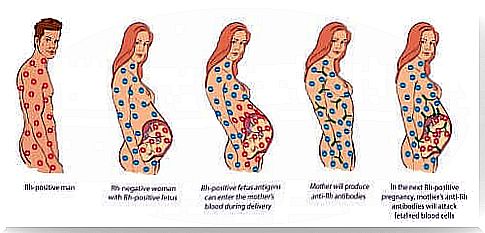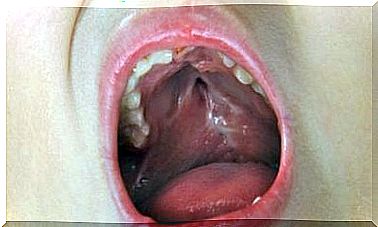Rhesus Incompatibility During Pregnancy – Being Parents

The Rhesus factor was discovered in 1940 while experiments on monkeys were being carried out. And more particularly on the Rhesus Macaque , hence the name of the Rhesus system. Thanks to these experiments, we were able to uncover the incompatibility of Rh and verify that people with Rh negative can only receive blood from a donor who also has Rh negative.
Incompatibility analysis: what is the Rhesus factor?
Rhesus factor is a protein located on the surface of red blood cells. If you have this protein, your Rhesus will be positive, but if you lack it, your Rhesus will be negative. Generally, the Rhesus of the population is positive: this means that we can receive blood from any donor.
On the other hand, blood groups are another way of classifying blood based on its different phenotypes; it is the A, B, O system. On the surface of red blood cells, there are other molecules called antigens, responsible for incompatibilities in transfusions and organ donation. Depending on their composition, we find 4 blood groups: A, B, AB and O and all of them can be positive or negative.
Rhesus incompatibility of blood groups
Rh negative is not considered a disease; indeed, it does not affect our health. On the other hand, it is recommended that women with a Rhesus negative take a test during pregnancy to check the baby’s Rhesus and the presence of antibodies. In this way, we can take the necessary precautions in case of incompatibility of Rhesus.

The baby’s blood and the mother’s blood rarely mix, but during childbirth there is a small probability that it will happen. Since Rhesus factor is hereditary, the baby’s blood type does not have to be the same as the mother’s ; it can also be that of the father.
In the event that the mother’s blood comes into contact with the baby’s red blood cells, the mother will generate proteins called anti-Rhesus positive antibodies in response to antigens in the baby’s blood. This circumstance can cause problems during the second pregnancy due to the incompatibility of Rhesus with the second child.
If I get pregnant again, what about Rhesus incompatibility?
As we said, if there is blood admixture, it leads to the generation of anti-Rh positive antibody, but such a fact does not in any way imply a problem in our daily life. However, we will only have to take a few precautions during our second pregnancy and the following ones.
At the time of the second pregnancy, if our baby’s blood is Rh positive, our anti-Rh positive antibodies will attack their red blood cells if they cross the placental barrier identifying them as a threat. As a result, in the baby, red blood cells are destroyed at a rate greater than the rate at which they are recreated, causing anemia which can be fatal.

Conclusions and Precautions
If our baby has Rh negative and so do we, there is nothing to worry about, since such a circumstance would not occur. In another case, the doctor will perform some tests and apply a correction factor:
- First trimester blood test
- If you have not started making antibodies, you will be given immunoglobulins to prevent the formation of antibodies.
- Analysis during the 28th week and after childbirth
- One last injection of immunoglobulin after childbirth
If you have generated the antibodies, then the immunoglobulins will not be effective. In these cases, the only thing that can be done is to carry out a strict control of the mother and the child, and when the time comes, perform a transfusion via the umbilical cord.
There are other cases where the mother may have generated anti-Rhesus positive antibodies without having remained pregnant: an abortion, an ectopic pregnancy or a bad transfusion may be one of these causes. Either way, if you are concerned that this is the case, we advise you to seek advice from your doctor and request a prenatal test.
The latest statistics produced by the organization KidsHealth indicate that, since these checks were carried out and the injection of immunoglobulins was used, the cases of abortions or exchange transfusions have drastically reduced and no longer exist. are almost no longer practiced today.









